World
Libyan foreign minister suspended over talks with Israeli counterpart
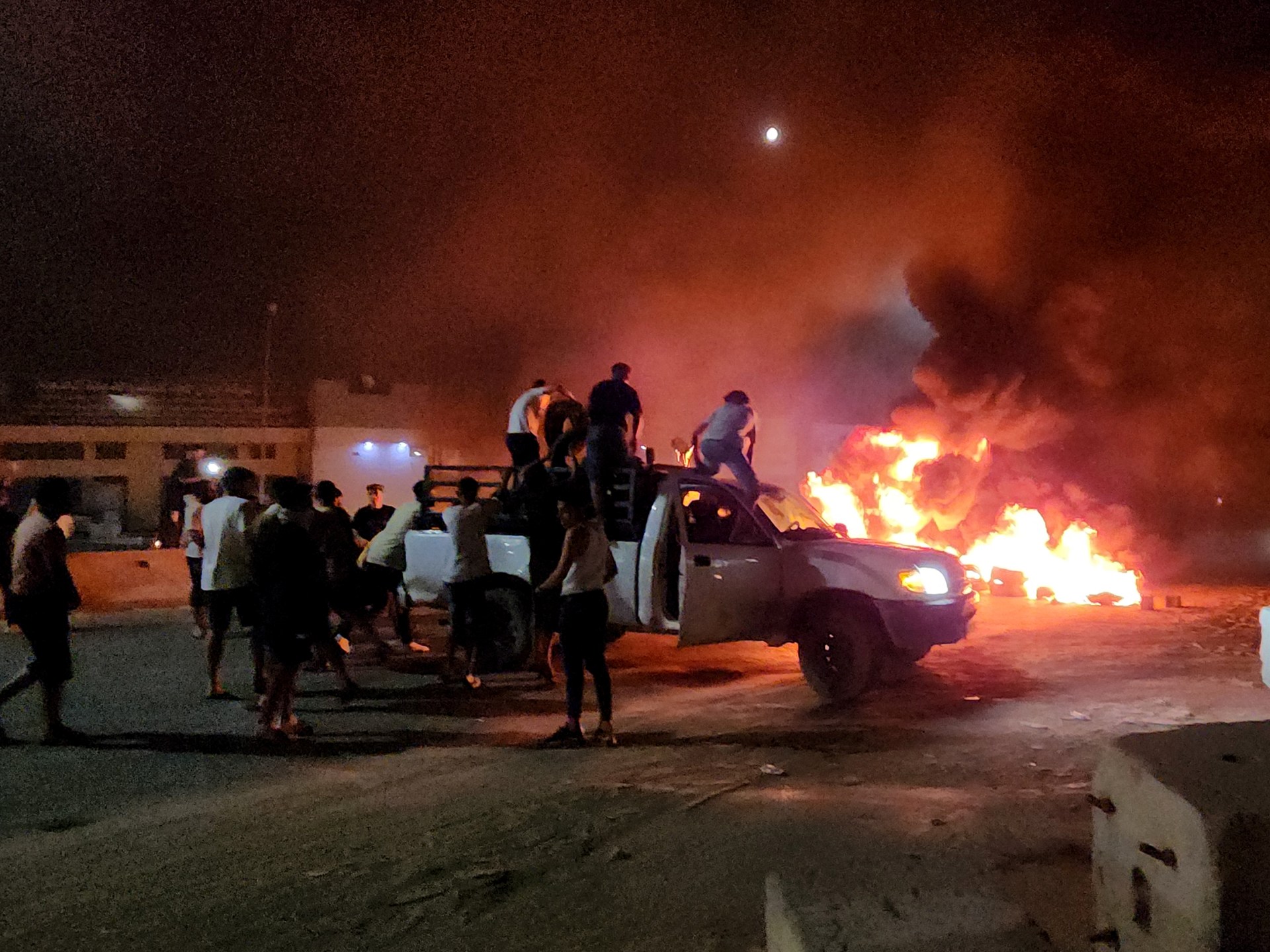
Hundreds of people demonstrated overnight in Libya’s capital and other provinces, angered by reports that the country’s foreign minister met with Israel’s top diplomat last week in Rome.
Videos circulated on social media showed protesters demonstrating in front of the foreign ministry building in Tripoli on Sunday night, calling for Najla al-Mangoush’s dismissal.
Some protesters also called for the resignation of Prime Minister Abdul Hamid Dbeibeh, gathering at his residence in Tripoli and setting fire to it. It was not immediately clear if Dbeibeh was at the residence.
Al Jazeera’s Malik Traina said there is widespread anger in Libya over al-Mangoush’s meeting, with protests starting late on Sunday across the west of the country.
“Protesters in al-Zawiya were calling for the downfall of the entire government due to this meeting, and people were closing down roads and burning tyres in Tajoura and Soug al-Jumaa. We saw other protests in Misrata,” he said, speaking from Tripoli.
Dbeibeh announced al-Mangoush’s “temporary suspension”, replacing her with Fathallah al-Zani, the current youth minister, as interim foreign minister. He added that al-Mangoush would be subject to an “administrative investigation”.
Traina said both legislative bodies, the Tripoli-based High Council of State and the Tobruk-based House of Representatives (HoR), have condemned the meeting and called for an emergency session to discuss it, with the HoR describing the meeting as a “crime committed against the Libyan people”.
An announcement a week later
The political row broke out Sunday after Israel’s foreign ministry said the two countries’ foreign ministers had met the previous week in a meeting hosted by Italian Foreign Minister Antonio Tajani.
“I spoke with the foreign minister about the great potential for the two countries from their relations,” Israeli Foreign Minister Eli Cohen said in a statement from Israel’s foreign ministry, adding that it was the first such diplomatic initiative between the two countries.
Cohen said they discussed “the importance of preserving the heritage of Libyan Jews, which includes renovating synagogues and Jewish cemeteries in the country”, and that “Libya’s size and strategic location offer a huge opportunity for the state of Israel”.
However, the Libyan foreign ministry said al-Mangoush had “refused to meet with any party” representing Israel.
“What happened in Rome was a chance and unofficial encounter, during a meeting with his Italian counterpart, which did not involve any discussion, agreement or consultation,” the ministry said in a statement.
It also accused Israel of trying to “present this incident” as a “meeting or talks”.
The ministry underlined that it “completely and unequivocally rejects normalization with the Zionist formation” and reiterated “in a clear and unambiguous manner Libya’s position regarding the Palestinian cause”.
The North African country does not recognise Israel and does not have diplomatic relations with Tel Aviv. Under a 1957 Libyan law, dealing with Israel is punishable by up to nine years in prison.
Path to normalisation?
Earlier on Sunday evening, Libya’s Presidential Council asked the government for “clarifications”, according to Libya Al Ahrar TV, citing spokesperson Najwa Wheba.
The Presidential Council, which has some executive powers and sprang from the UN-backed political process, includes three members representing the three Libyan regions.
Their request said the meeting “does not reflect the foreign policy of the Libyan state, does not represent the Libyan national constants and is considered a violation of Libyan laws which criminalise normalisation with the ‘Zionist entity’”.
It asked the head of government “to apply the law if the meeting took place”.
According to The Associated Press, an anonymous Libyan government official said the normalisation of relations between Libya and Israel was first discussed in a meeting with Dbeibah and CIA Director William Burns, who visited the Libyan capital in January.
According to the official, Burns proposed that Dbeibah’s government, which is recognised as Libya’s internationally backed government, join the group of four Arab countries that normalised relations with Israel under the US-brokered Abraham Accords in 2020.
The Libyan premier gave initial agreement but was concerned about public backlash in a country known for its support for the Palestinian cause, the official said.
On Monday, an Israeli official told the Reuters news agency that the meeting between al-Mangoush and Cohen was agreed in advance “at the highest levels” in Libya and lasted more than an hour.
Separately, Israel’s former foreign minister and prime minister Yair Lapid criticised Cohen for going public with the sensitive meeting.
“Countries of the world this morning are looking at the irresponsible leak of the meeting of the Israeli and Libyan foreign minister and asking themselves: Is it possible to manage foreign relations with this country? Is it possible to trust this country?” Lapid said in a statement.
Israel has normalised relations with some Arab countries in recent years as part of US-backed deals known as the Abraham Accords.
However, Prime Minister Benjamin Netanyahu’s hardline government has come under intense criticism from Arab states because of surging violence in the occupied West Bank and for backing the expansion of Jewish settlements in the occupied territory.

World
How is Azerbaijan involved with France and New Caledonia?
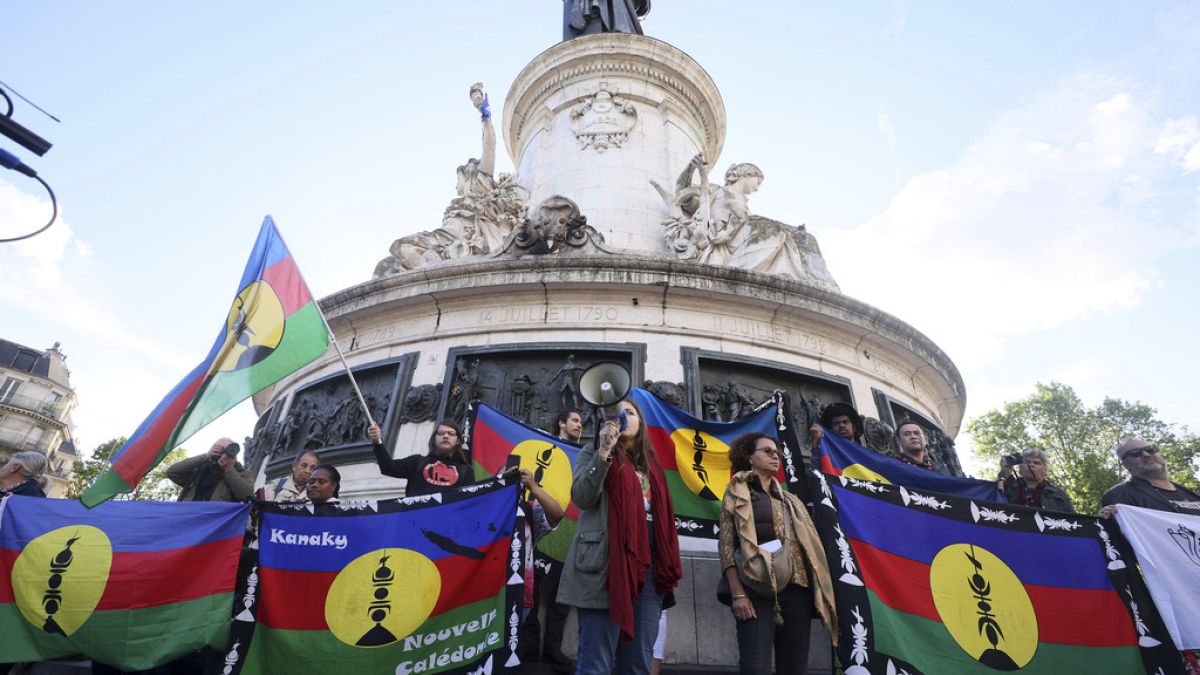
France has accused Azerbaijan of meddling in its Pacific territory, New Caledonia, by supporting independence movements and spreading disinformation, amid broader geopolitical tensions.
France has accused Azerbaijan of meddling in its Pacific archipelago territory of New Caledonia.
Despite the vast geographical and cultural distance between the Caspian state and the French Pacific territory, this claim is rooted in a complex web of historical, political, and diplomatic tensions.
The Crisis in New Caledonia
New Caledonia, located between Australia and Fiji, is a French territory with a history of striving for independence.
The recent unrest in New Caledonia was ignited by a new electoral law perceived by the indigenous Kanak population as discriminatory.
This law allows people who have lived in New Caledonia for at least ten years the right to vote in local elections, which pro-independence supporters argue will dilute the Kanak vote.
France’s Accusations
France’s Interior Minister, Gérald Darmanin, has publicly stated that Azerbaijan, along with China and Russia, is interfering in New Caledonia’s internal matters. “This isn’t a fantasy. It’s a reality,” Darmanin told the France 2 TV channel, emphasizing the seriousness of the allegations.
The French government points to the sudden appearance of Azerbaijani flags at Kanak independence protests and the backing of separatists by groups linked to Baku.
Azerbaijan has vehemently denied any involvement, calling the accusations baseless. “We completely reject the baseless accusations,” said Ayhan Hajizadeh, a spokesperson for Azerbaijan’s Foreign Ministry. “We refute any connection between the leaders of the struggle for freedom in Caledonia and Azerbaijan.”
A significant element in this story is the Baku Initiative Group, established during a conference in July 2023 in Azerbaijan. This group, which includes participants from various French territories seeking independence, aims to support anti-colonial movements against France.
The group has expressed solidarity with the Kanak people and condemned the recent electoral reforms in New Caledonia. “We stand in solidarity with our Kanak friends and support their fair struggle,” the Baku Initiative Group stated.
Why are France and Azerbaijan clashing diplomatically?
The tensions between France and Azerbaijan extend beyond New Caledonia. France is a traditional ally of Armenia, Azerbaijan’s historical rival, particularly regarding the contentious Nagorno-Karabakh region.
Following the 2020 war and a subsequent 2023 offensive by Azerbaijan to reclaim control of Nagorno-Karabakh, France has openly supported Armenia.
This support includes defence agreements and military equipment supplies, fuelling further animosity from Azerbaijan. Darmanin referred to Azerbaijan as a “dictatorship,” highlighting the deep-seated distrust.
France has also accused Azerbaijan of engaging in disinformation campaigns to destabilise its territories. Pro-Azerbaijani social media accounts have been linked to the spread of misleading content about the French police’s actions in New Caledonia.
A French government source mentioned a “pretty massive campaign, with around 4,000 posts generated by (these) accounts,” aimed at inciting violence and mistrust.
This follows France recalling its ambassador to Azerbaijan in April, with President Macron expressing regret for Azerbaijan’s actions, along with his hope that the Azerbaijanis would clarify their intentions.
Why New Caledonia?
While Azerbaijan’s direct interest in New Caledonia might seem far-fetched, it fits into a broader strategy of challenging the French colonial legacy and supporting separatist movements.
By aligning with anti-colonial sentiments, Azerbaijan aims to position itself as a champion of liberation movements, simultaneously discrediting France on the international stage.
This effort is seen as part of a broader geopolitical manoeuvering, including Azerbaijan’s efforts to tarnish France’s image, as noted by its alleged disinformation campaign against France’s capability to host the Olympic Games.
The heightened tensions have had further repercussions. The French Sports Minister cancelled the Olympic flame’s journey through New Caledonia, for security reasons, but also an action that reflects the severity of the unrest and the accusations of foreign interference.
The involvement of Azerbaijan in New Caledonia’s unrest is a multifaceted issue rooted in broader geopolitical rivalries and historical grievances.
For Azerbaijan, supporting independence movements in French territories is a way to strike back at France for its support of Armenia and to bolster its own international standing.
For France, these actions represent a direct challenge to its sovereignty and stability in its overseas territories, prompting strong accusations and heightened tensions between Paris and Baku.
World
Ukraine and Russia exchange drone attacks while Russia continues its push in the east
KYIV, Ukraine (AP) — Russia said it shot down some 60 drones and several missiles over its territory while Ukraine in turn said it destroyed over 30 Russian drones. At least four people were reported killed in an attack on the outskirts of Kharkiv on Sunday as Russia pushed ahead with its renewed offensive in Ukraine’s war-ravaged northeast.
Russian air defenses shot down 57 Ukrainian drones over the southern Krasnodar region overnight, the Russian Defense Ministry said.
Local military officials said drone debris hit an oil refinery in the town of Slavyansk-on-Kuban, but there was no fire or damage. News outlet Astra published videos appearing to show an explosion at the refinery as it was hit by a drone. The videos could not be independently verified.
Nine long-range ballistic missiles and a drone were destroyed over the Russia-occupied Crimean Peninsula, following Friday morning’s massive Ukrainian drone attack that cut off power in the city of Sevastopol.
A further three drones were shot down over the Belgorod region, which borders Ukraine. According to regional Gov. Vyacheslav Gladkov, a church roof was set on fire by falling drone debris, but there were no casualties.
The Russian-installed governor of Ukraine’s partially occupied Kherson region, Vladimir Saldo, said that one person died and 16 were wounded when a Ukrainian drone hit a minibus on Sunday morning.
In Ukraine, air force officials said air defenses shot down all 37 Russian drones launched against the country overnight.
In the northeastern Kharkiv region, where Moscow recently launched a new offensive, regional Gov. Oleh Syniehubov said Sunday morning that one person died and 11 were wounded as a result of shelling over the previous day.
Later on Sunday, Syniehubov said four people were killed and eight wounded in a Russian strike on the outskirts of the regional capital, also called Kharkiv.
Ukrainian troops are fighting to halt Russian advances in the Kharkiv region that began late last week.
Russian President Vladimir Putin said on Friday during a visit to China that Moscow’s offensive in the Kharkiv region aims to create a buffer zone but that there are no plans to capture the city.
——
Morton reported from London.
——
Follow AP’s coverage at https://apnews.com/hub/russia-ukraine
World
Argentina's Milei shuts up critics with miracle turnaround of economy, strong security policies

President Javier Milei of Argentina continues to stun his critics with an economy that has outperformed expectations and continues along an ambitious path for national security, including pursuit of a NATO global partnership.
“The fact that you have a president, head of state, who is defending the free market, who is defending the role of entrepreneurs and businessmen as creators of value and just defending deregulation when the tendency in Latin America and much of the West has been to regulate the economy . . . I think that’s very positive, not only for Argentina, but for the region as a whole and maybe beyond,” Daniel Raisbeck, a policy analyst at the CATO Institute, told Fox News Digital.
Milei won the presidency in November last year and prompted concern from some in the West that he would lead his country down a road to ruin with libertarian policies that would make an already troubled economy even weaker. Voters wanted economic relief from a market hit with some of the highest inflation in the world.
Those attitudes have shifted just months later as Milei has enacted a raft of policy changes: The International Monetary Fund (IMF) agreed to release a tranche of loans due to Argentina under a bailout program thanks to Milei’s government managing to create a fiscal surplus in the previous fiscal quarter and bring inflation down.
ARGENTINA REPORTS ITS FIRST SINGLE-DIGIT INFLATION IN SIX MONTHS AS MARKETS SWOON AND COSTS HIT HOME
President of Argentina Javier Milei gives a speech after his Inauguration Ceremony at National Congress on December 10, 2023, in Buenos Aires, Argentina. (Marcelo Endelli/Getty Images)
Argentina’s inflation in March alone hit 287%, causing poverty to deepen, and citizens to take to the streets with strikes and protests against his policies. The monthly inflation rate was 25% in December when Milei first took office.
Milei then went on to significantly reduce spending with major cuts to public-sector wages as he suspended public works projects and cut subsidies. He also devalued the country’s currency by over 50%, which helped it stabilize in value even as the price of basic goods jumped.
The monthly inflation dropped to 8.8% by April, marking the first single-digit inflation rate in over six months.
Argentina recorded a $589 million budget surplus in January and continued to post a surplus for each of the first four months of 2024, even as the surplus shrank to $299 million in April, Reuters reported. This marks the country’s first quarterly surplus since 2008.
Raisbeck stressed that Milei’s primary measure of cutting spending has proven highly effective, while arguing that the significant deregulation in other parts of the economy has helped it revive over those first months of the new administration.
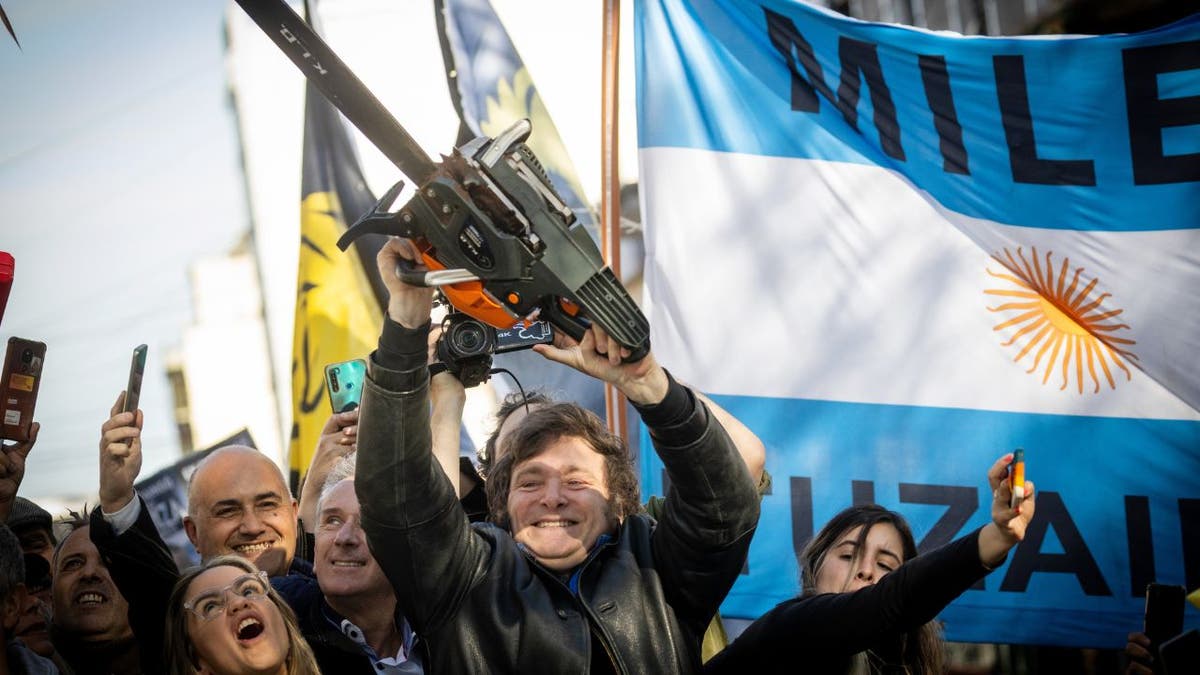
Javier Milei of La Libertad Avanza lifts a chainsaw next to Buenos Aires province governor candidate Carolina Piparo of La Libertad Avanza during a rally on September 25, 2023, in San Martin, Buenos Aires, Argentina. (Tomas Cuesta/Getty Images)
“Argentina was one of the most regulated economies in the world,” Raisbeck said. “So when you have a very well-thought-out package like the one that they introduced . . . and you get rid of as many of those regulations as you can, then it’s very positive.”
AT LEAST 90 INJURED AFTER PASSENGER TRAIN HITS BOXCAR, DERAILS IN ARGTENTINE CAPITAL
He noted that Milei has not adhered to some of his more aggressive campaign promises, which included a promise to dollarize the economy and shut down the Central Bank, saying that it was a “non-negotiable matter.”
Even days after he won the election, Milei appeared to favor more moderate Cabinet members than many would have expected of a man who jolted the international community with his outsider attitude and plans.
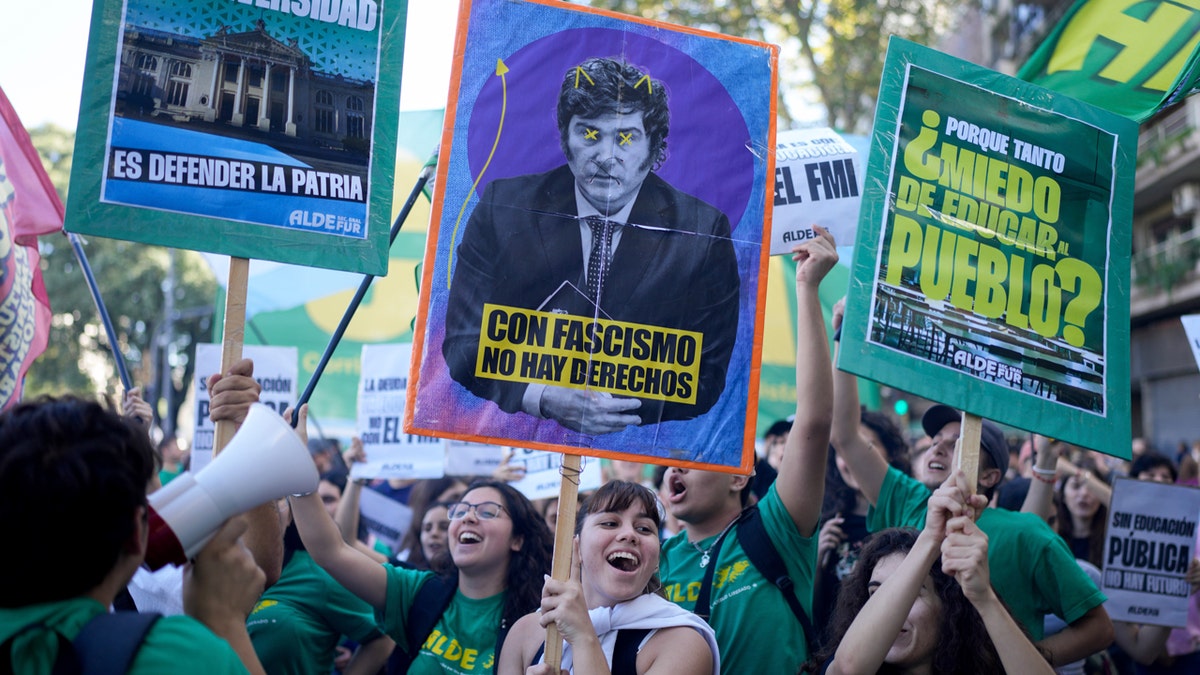
Students protest for more public university funding and against austerity measures proposed by President Javier Milei, featured on the sign, in Buenos Aires, Argentina, Tuesday, April 23, 2024. The posters read in Spanish, “With fascism, there are no rights,” center, and “Why so much fear to educate the people?” and “Defending the university is defending the country.” (AP Photo/Natacha Pisarenko)
The Wall Street Journal, in December 2023, argued that Milei’s tenure “may turn out to be pretty conventional,” with pro-market Economy Minister Luis Caputo leading away from Milei’s more radical plans.
The promised dollarization has been delayed, and Raisbeck explained that Milei’s approach has relied heavily on using the Central Bank to help regulate the economy, though he argued that Milei’s policies remain libertarian due to the deregulation he has pursued in other areas.
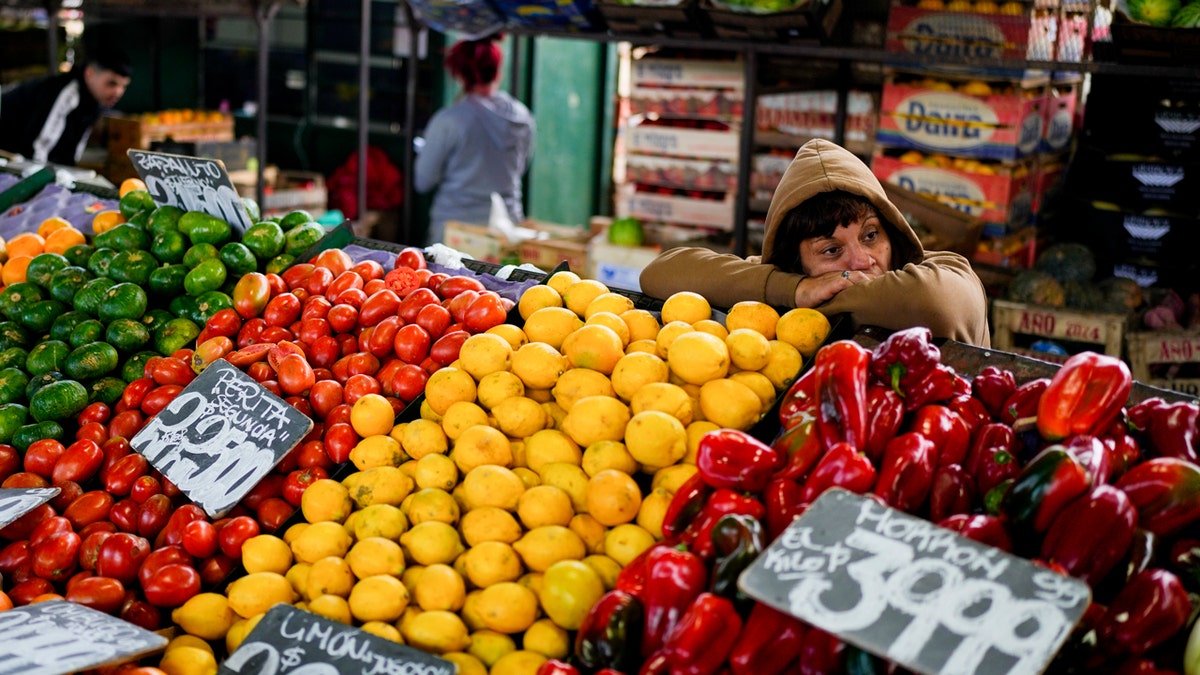
A vendor waits for customers at the central market for fruit and vegetables in Buenos Aires, Argentina, Friday, May 10, 2024. (AP Photo/Natacha Pisarenko)
“Everything related to deregulation is very libertarian, and we’ve seen great success already in the housing market, for instance,” Raisbeck said. “So that obviously brought a huge amount of supply that was suppressed because of price controls.”
Milei also brought Argentina back to the international foreground, with a stronger focus on national security and changing up the country’s goals from the previous administration – most notably, he rejected the invitation to join the China and Russia-led economic bloc BRICS.
PERUVIAN LAWMAKERS BEGIN YET ANOTHER EFFORT TO REMOVE PRESIDENT DINA BULARTE FROM OFFICE
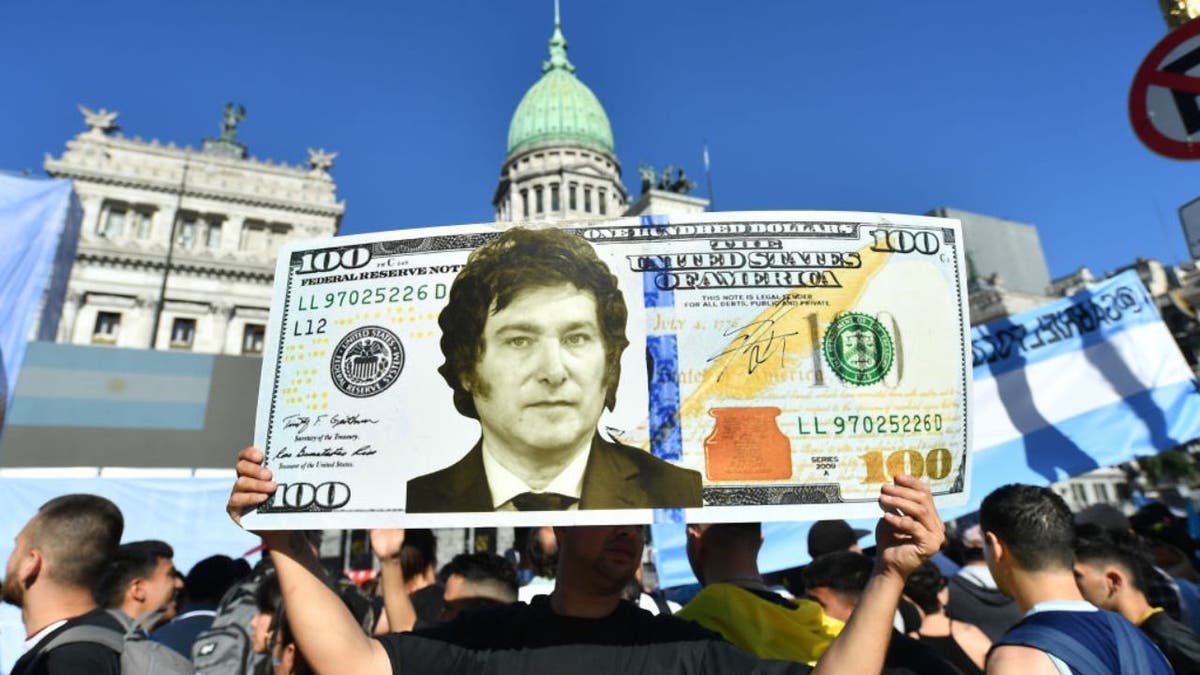
A supporter holds a giant dollar bill with the face President elect Javier Milei as people start gathering outside National Congress ahead of his inauguration ceremony on December 10, 2023, in Buenos Aires, Argentina. (Marcelo Endelli/Getty Images)
Milei argued that it was not “opportune” for Argentina to join the bloc as a full member, according to German outlet DW. However, he will continue to develop ties with its members in the meantime.
“They have a good security minister, Patricia Bullrich, who has experience because she was a security minister in the previous government,” Joseph M. Humire, the executive director of the Center for a Secure Free Society, told Fox News Digital. “She has been able to get the ball rolling very quickly, and I think that was the benefit of having her in that position.”
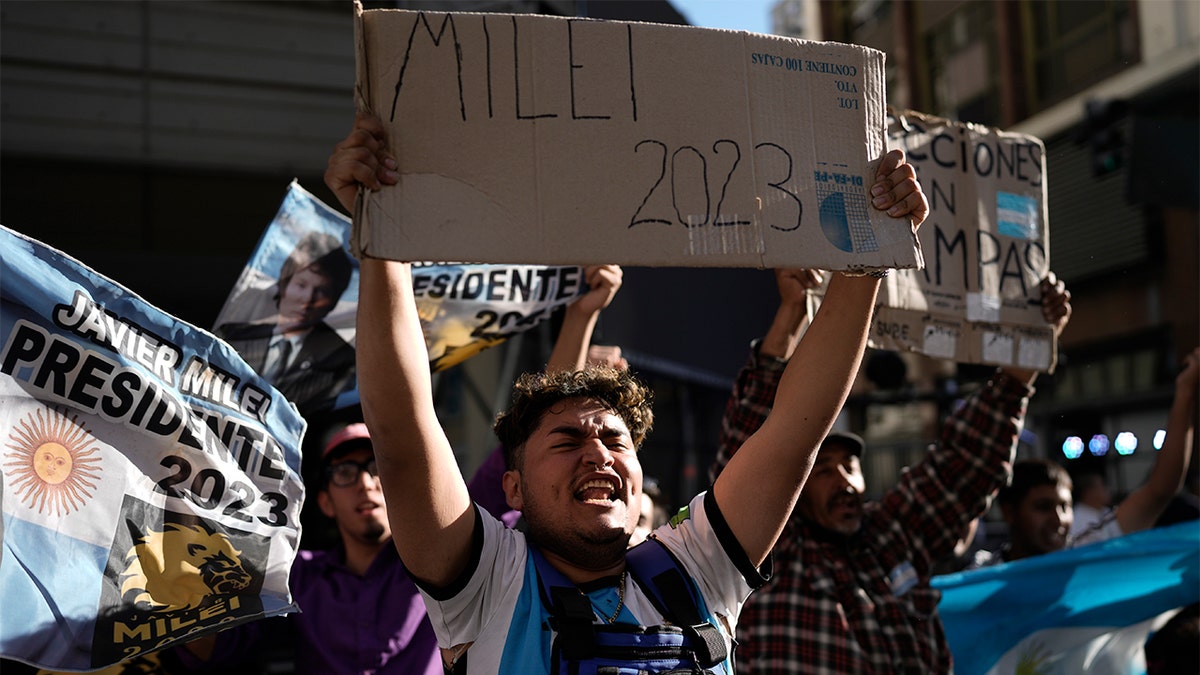
Supporters of presidential candidate Javier Milei gather outside his headquarters during the presidential runoff election in Buenos Aires, Argentina, Sunday, November 19, 2023. (AP Photo/Rodrigo Abd)
Humire explained that Milei’s government has largely focused on clearing out external agitators, particularly those connected to Russian disinformation networks, which remain a paramount concern in most parts of the world as Moscow seeks to expand its influence.
“The external forces are usually the key,” Humire said. “Usually, it’s the Russians. The Russians have probably the biggest disinformation networks to be able to amplify local grievances and turn them into this macro instability, and they did that in Colombia, in Chile.”
“A lot of the specifics of the nation’s security has been in mitigating these agitation networks that create chaos throughout the country, and they have been neutralizing some of these threats while they’re studying others,” he added.
The Associated Press contributed to this report.
-

 Finance1 week ago
Finance1 week agoSpring Finance Forum 2024: CRE Financiers Eye Signs of Recovery
-

 World1 week ago
World1 week agoIndia Lok Sabha election 2024 Phase 4: Who votes and what’s at stake?
-

 News1 week ago
News1 week agoThe Major Supreme Court Cases of 2024
-

 Politics1 week ago
Politics1 week agoTales from the trail: The blue states Trump eyes to turn red in November
-

 World1 week ago
World1 week agoBorrell: Spain, Ireland and others could recognise Palestine on 21 May
-

 Politics1 week ago
Politics1 week agoFox News Politics: No calm after the Stormy
-

 World1 week ago
World1 week agoUkraine’s Zelenskyy fires head of state guard over assassination plot
-

 Politics1 week ago
Politics1 week agoUS Border Patrol agents come under fire in 'use of force' while working southern border





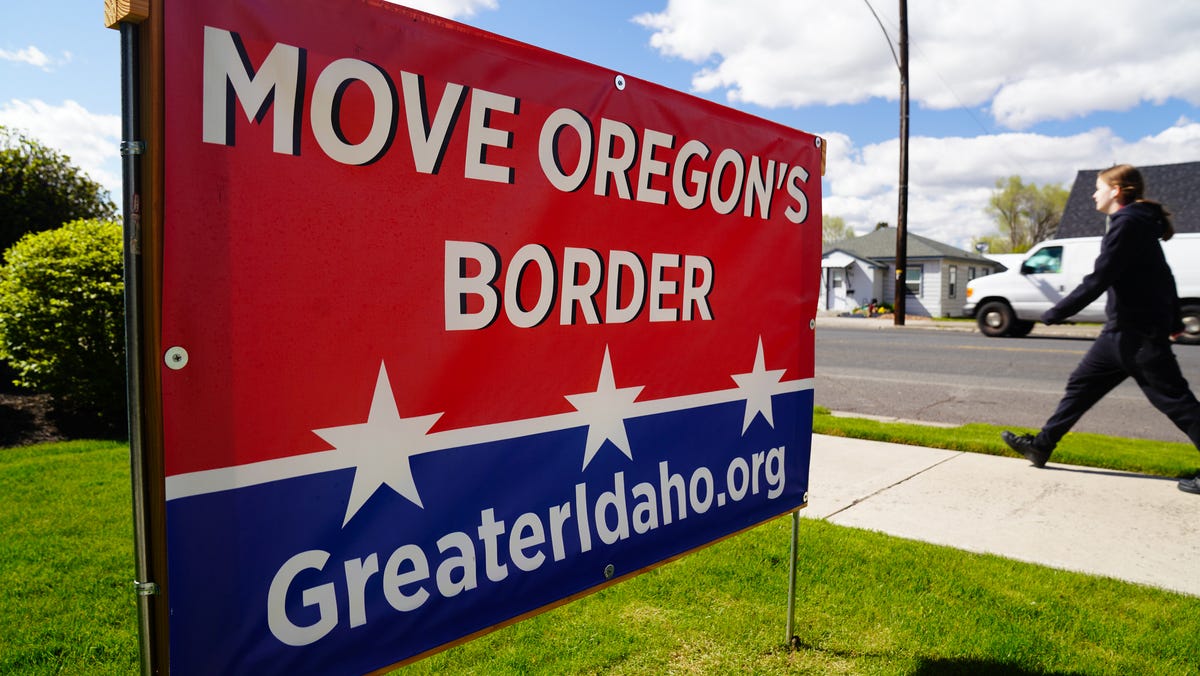

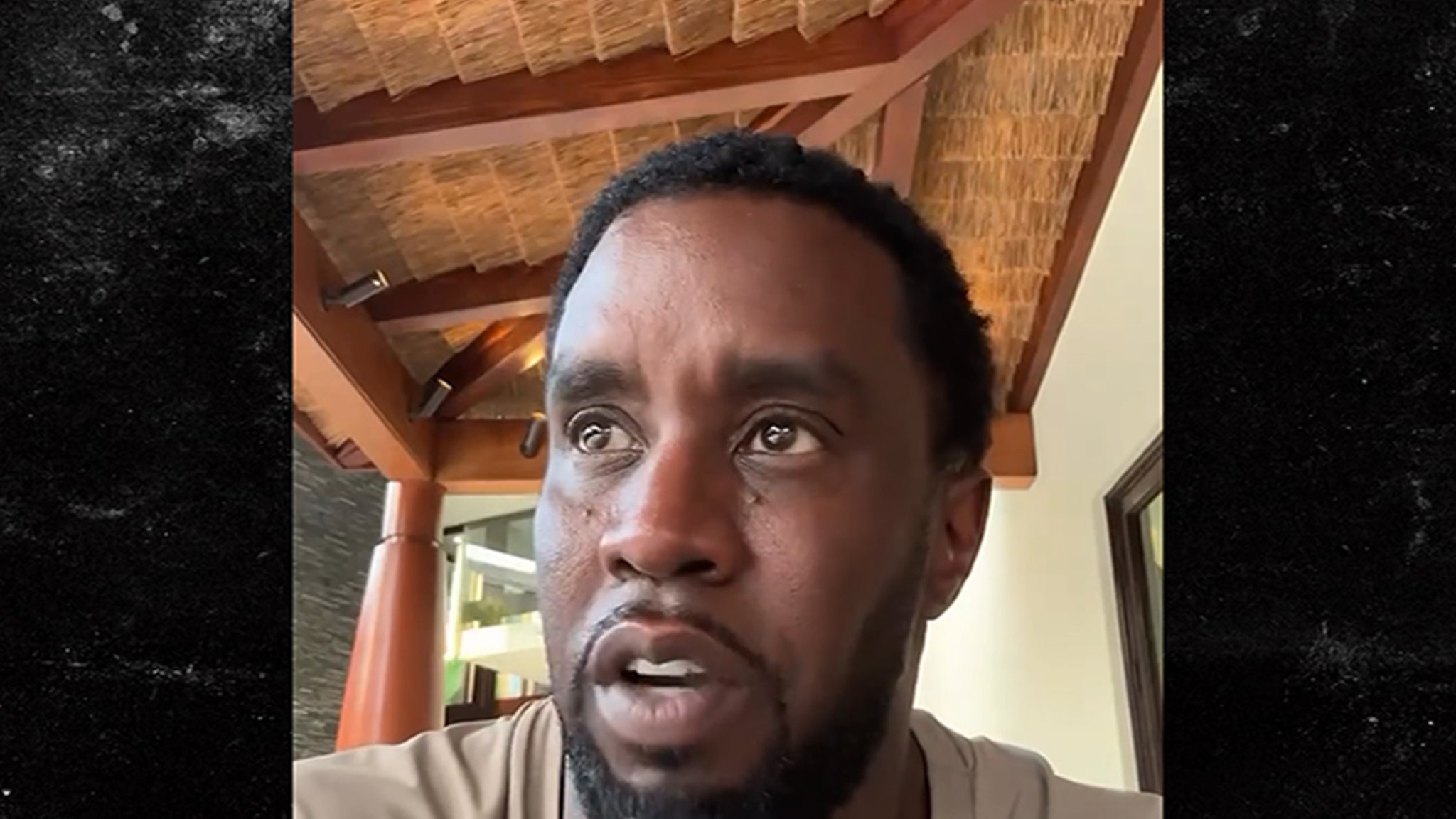
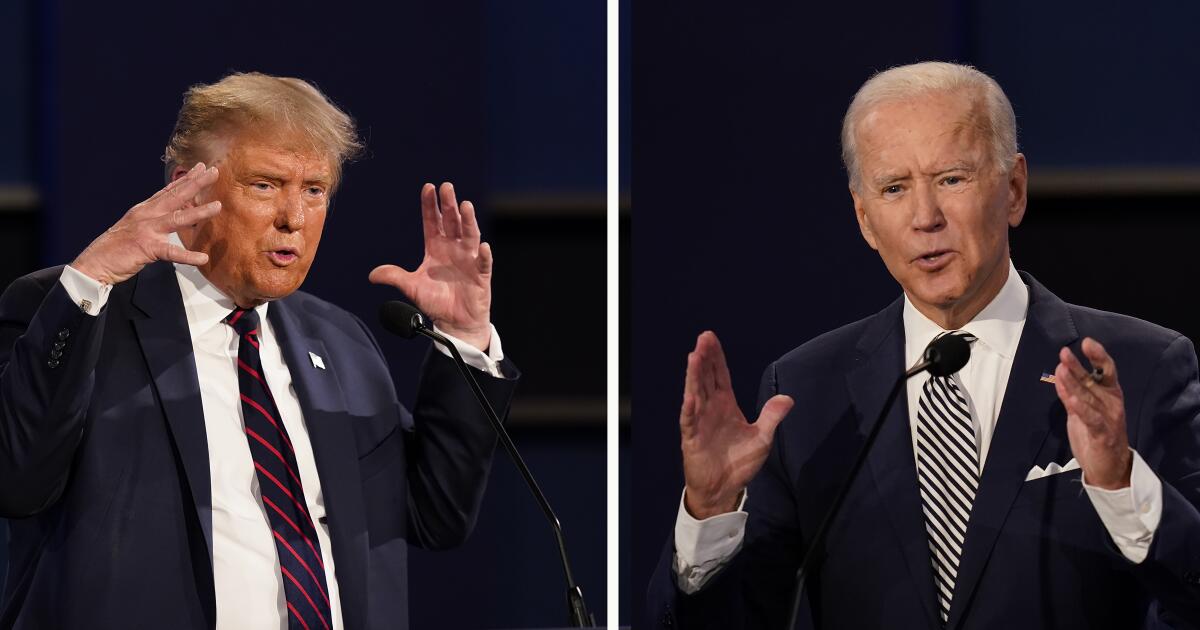








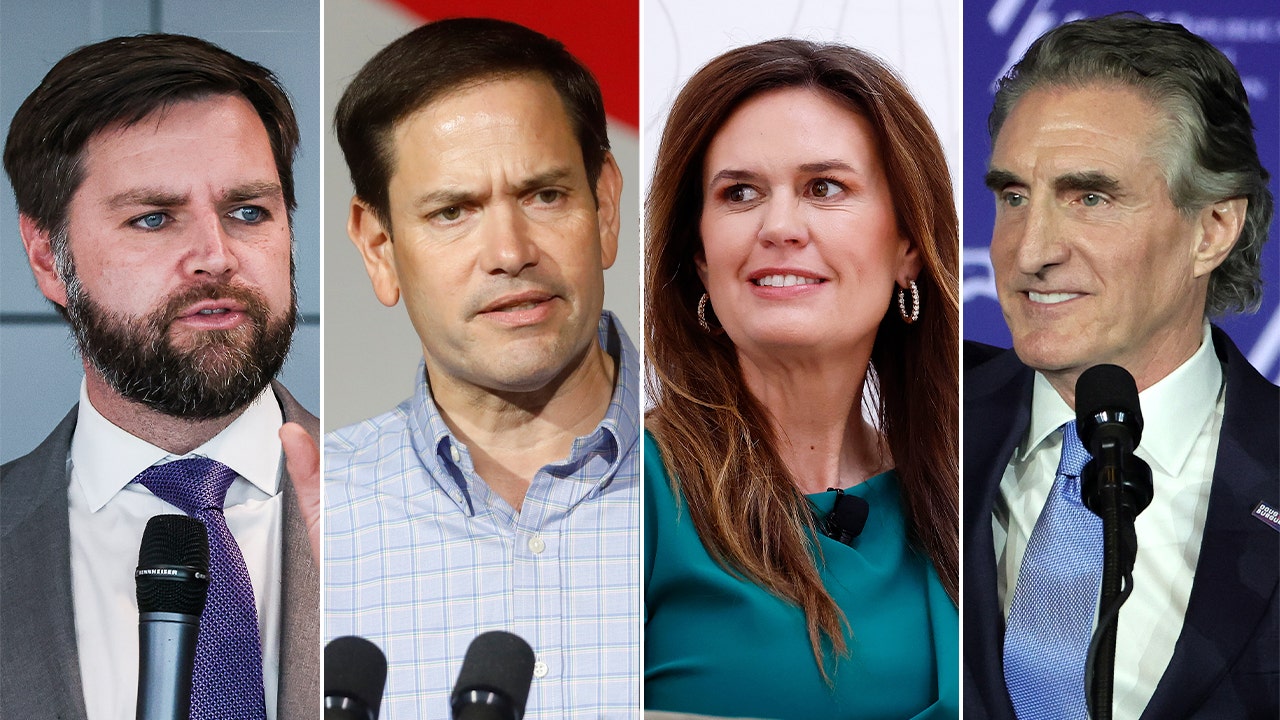


Pingback: Libya Gate Showed Just How Unrealistic Are Isael’s Hopes for Normalizations with Arab States - Al Sarira